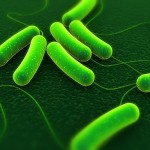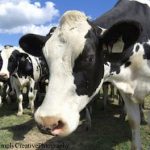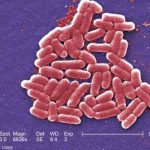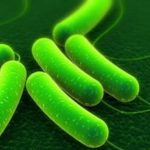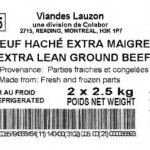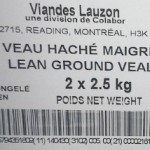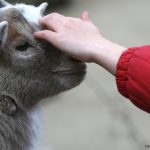Scientists at Western University have developed a new rapid-test system to detect E. coli O157 bacteria. This new test will help prevent recalls and outbreaks, since it can be used to discover contamination before the food leaves the plant and is shipped. The collaboration that developed this test is between Dr. Michael Rieder at the Robarts Research Institute at Western University and two London entrepreneurs. Currently, it can take up to three weeks for testing conducted on foods, especially ground meat products. After the initial test, most facilities test again for confirmation. Most facilities do not test-and-hold foods; rather, they conduct tests, then the food is shipped to retail locations. That's why recalls are so often issued. If a test comes back positive, a recall must be … [Read more...]
Milk Makers Fest E. coli Patient Still Hospitalized
Organizers of the Milk Makers Fest in Lynden, Washington, said one of the 45 case patients in an E. coli outbreak associated with the annual schools event remained hospitalized this week at St. Joseph Hospital in Bellingham. All together there have been eight hospitalizations among a case patient population dominated by first-graders from public schools throughout Whatcom County, including schools in Bellingham, Lynden, Ferndale, Meridian, Blaine, Nooksack Valley and Mount Baker. E. coli lawyers, medical experts, infectious disease investigators and a growing number of parents suspect the cause of the outbreak could be related to animal feces at the event's petting zoo or around other live animals on exhibit at the Milk Makers Fest. Still, officials from the Centers for Disease Control … [Read more...]
Researchers at KSU Created Better E. coli Detection Methods
Researchers at Kansas State University are creating better ways to detect E. coli to improve the cattle industry and protect consumers. Lane Noll, master's student in veterinary biomedical science, Dr. T.G. Nagaraja, and Jianfa Bai are leading the project. A USDA Coordinated Agriculture Project grant is funding the research. Noll has developed a molecular assay that can "detect and quantify major genes specific for E. coli O157. He said in a statement, "developing a method to detect E. coli before it can potentially contaminate the food supply benefits the beef industry by preventing costly recalls but also benefits the consumer by ensuring the safety of the beef supply." The test finds the bacteria through "fingerprints", or genetic sequences, that are unique to that organism. The … [Read more...]
10 E. coli Cases in OH and MI, Are Burgers the Source of an Outbreak?
Are rare burgers the source of an E. coli outbreak in Michigan and Ohio? Lab tests have shown that cases in both states are a genetic match and health authorities in Michigan have identified ground beef as the source as all of the Michigan cases reported eating a rare hamburger at different restaurants before becoming ill. It's possible other states are involved. The U.S. Department of Agriculture (USDA) is working with state and county health departments to track the the source of the ground beef which may have been contaminated with E. coli O157 before it arrived at restaurant locations in Michigan. In Ohio, the four case patients range in age from 19 to 42. Three are from Lucas county, one is from Portage county. In Michigan, the case patients, who range in age from 20 to 41, are … [Read more...]
E. coli O157 Sickens 10 in MI and OH
E. coli O157 has sickened at least 10 people in Michigan and Ohio in what may be a multistate outbreak linked to ground beef. All of the Michigan cases reported eating a rare hamburger at a restaurant before becoming ill. The Ohio Department of Health is investigating four cases of E. coli O157, three in Lucas County and 1 in Portage county. The case patients range in age from 19 to 42 years old. Three of them were hospitalized but none developed hemolytic uremic syndrome (HUS) which leads to kidney failure. Laboratory testing has shown that the Ohio cases are a genetic match to at least five cases reported in MI earlier this week. Those cases patients, who range in age from 20 to 41, all reported eating rare hamburgers at different restaurants in late April. Now, a sixth … [Read more...]
In Canada, Veal Recall for E. coli Updated to Include Beef
The Canadian Food Inspection Agency (CFIA) and Groupe Colabor are updating the recall of ground veal for E. coli O157:NM to include ground beef products. These products were identified during the CFIA's food safety investigation. No illnesses have been reported to date. The newly recalled products include Viandes Lauzon Extra Lean Ground Beef in 2 x 2.5 kg. packages. The code on the product is 30/04/14, and Item # 33345. Also recalled is Viandes Lauzon Lean Ground Beef in 2 x 2.5 kg packages, with code 30/04/14 and Item # 33355. Finally, Viandes Lauzon Medium Ground Beef is recalled, in 2 x 2.5 kg. packages. The Item number is 33318. The products were sold in Quebec to hotel, restaurants, and institutions such as daycares and healthcare facilities. You can see photos of the product … [Read more...]
In Canada, Ground Veal Recalled for E. coli O157:NM
The Canadian Food Inspection Agency (CFIA) and Groupe Colabor Inc. are recalling lean ground veal because it may be contaminated with E. coli O157:NM. This product has been sold to hotels, restaurants, institutions, daycare and healthcare facilities. No illnesses have been reported to date in connection with the consumption of this product. The recalled product is Viandes Lauzon Lean Ground Veal in 2 x 2.5 kg packages. The code on the product is 30/04/14 and Item #35180. Facilities should check to see if they have the recalled product in their fridge or freezer. Recalled products should be thrown out in a closed container or returned to the supplier. The recall was triggered by the company. The CFIA is conducting an investigation and may issue recalls of other products. The veal was … [Read more...]
E. coli O157 Isolated from Bison
An article in BMC Veterinary Research states that E. coli O157 has been found in bison retail meat and has been isolated from feces at slaughter houses on on bison farms. This is distressing, since cattle are already well documented E. coli O157 reservoirs, and bison is considered an alternative to beef. Bison and cattle have common ancestors and lineage. The scientists found that the epithelial cell markers in the GI tract of bison and cattle were similar. E. coli O157 adheres to RAJ squamous epithelial cells (RSE) in both animals. The authors conclude that bison are "likely 'wildlife' reservoirs for E. coli O157, harboring these bacteria in their gastrointestinal tract." That means that bison can serve as reservoirs for E. coli O157 in the wild. Bison meat was implicated in a … [Read more...]
Cleveland County Petting Zoo Recommendations: Enter at Your Own Risk
The Cleveland County Fair Working Group held a press conference this week to give their recommendations on how to make the event safer. Last year's outbreak of E. coli O157:H7 at the Fair sickened more than 100 people; seven people developed hemolytic uremic syndrome. A toddler died as a result of the infection. In early May, a task force recommended that there be no petting zoo at the fair at all. The goal of the Group was to review prevention measures that were in place during that outbreak and to identify measures to help mitigate the risk of disease transmission. The Group did not recommend that petting zoos or animal contact exhibits be banned at the fair. They stated that animal contact exhibits at sanctioned agricultural fairs must adhere to the requirements set forth in … [Read more...]
Hawaii Reports E. coli O157:H7 Outbreak
The Hawaii Department of Health has sent a letter to Oahu hospitals about an E. coli outbreak that has sickened at least six people since February. Six "molecularly matched" E. coli O157:H7 infections have been reported, with illness onset dates from February 19 to March 2, 2013. There is no mention of this outbreak in the Hawaii Department of Health news releases. The memo reads, "The Hawaii Department of Health (HDOH) is investigating a cluster of six confirmed, molecularly matched E. coli O157:H7 infections. Five of the six cases are children, while the sixth is elderly; all are Oahu residents with no travel history. Three of the six cases have been hospitalized with two developing hemolytic uremic syndrome (HUS). Five cases have recovered or are recovering; one remains hospitalized. … [Read more...]
